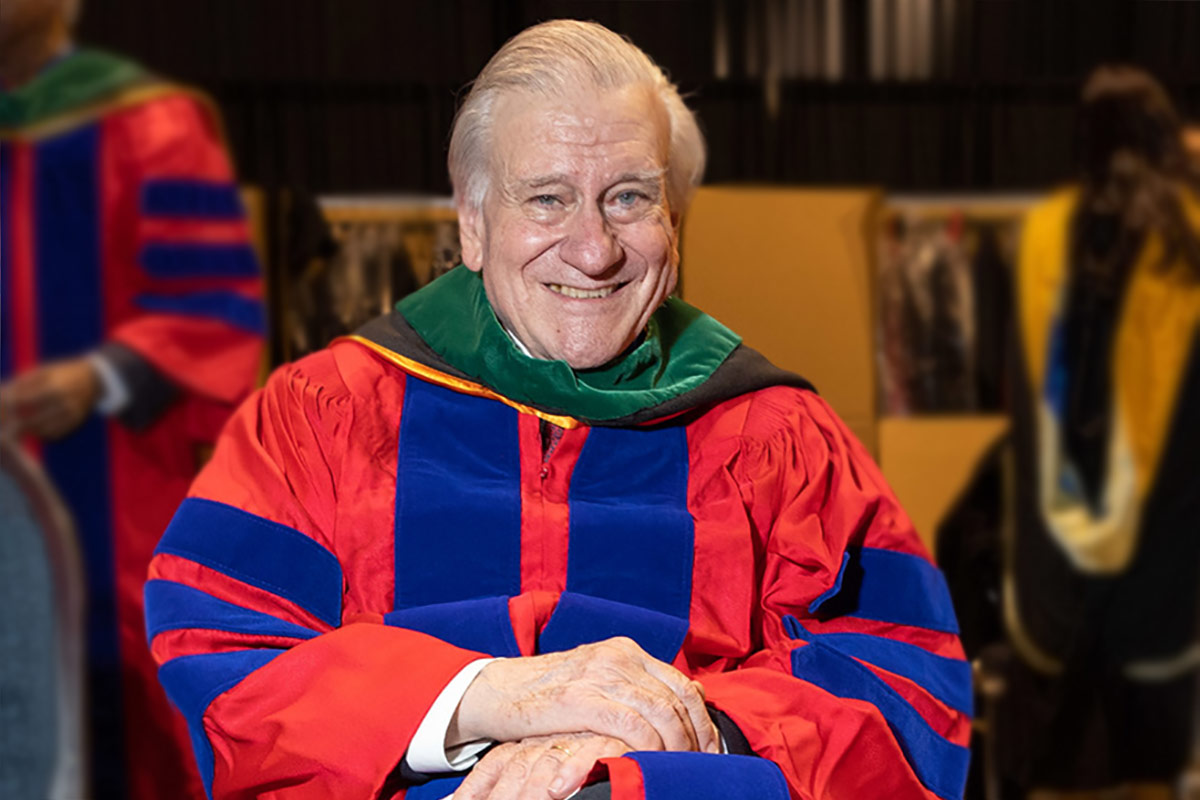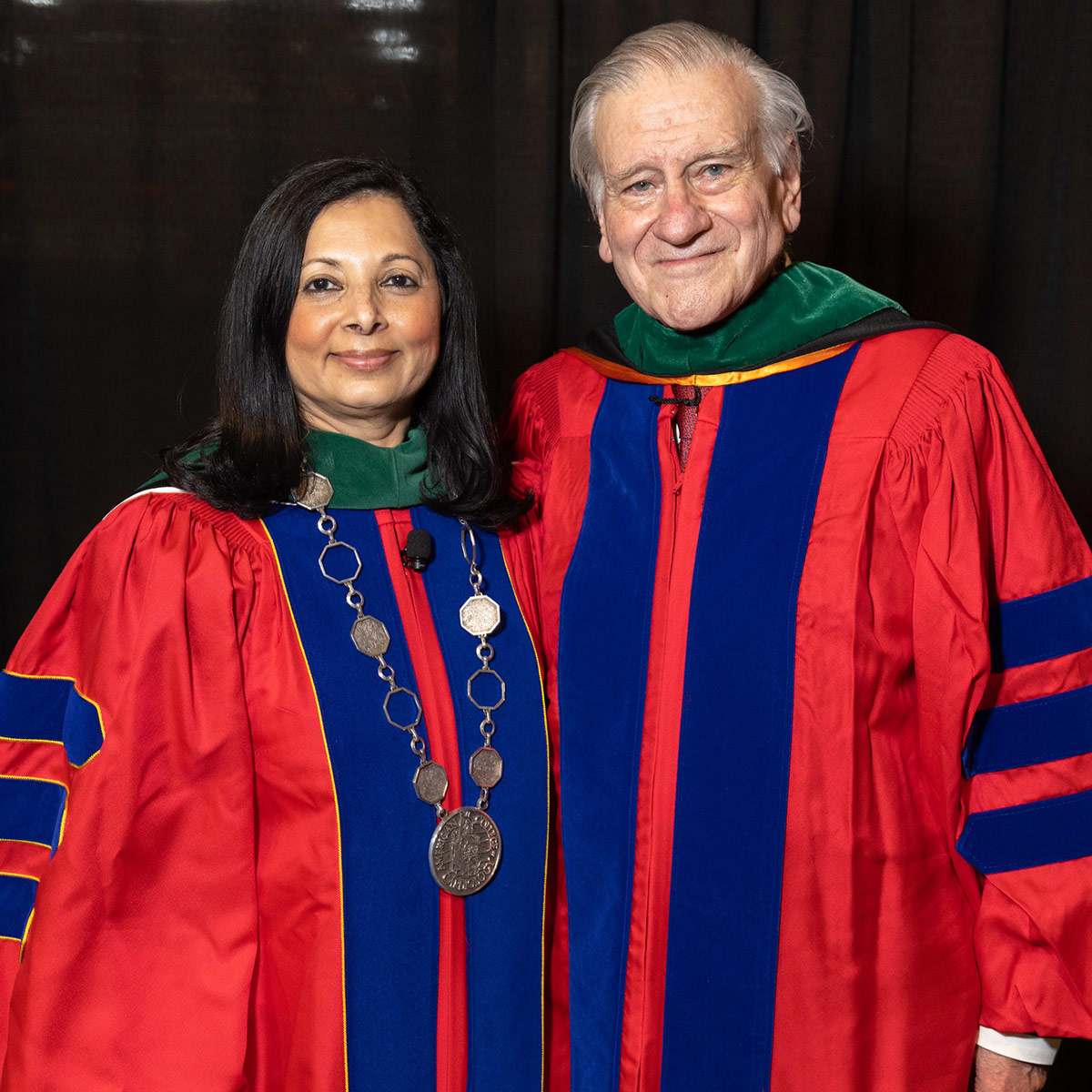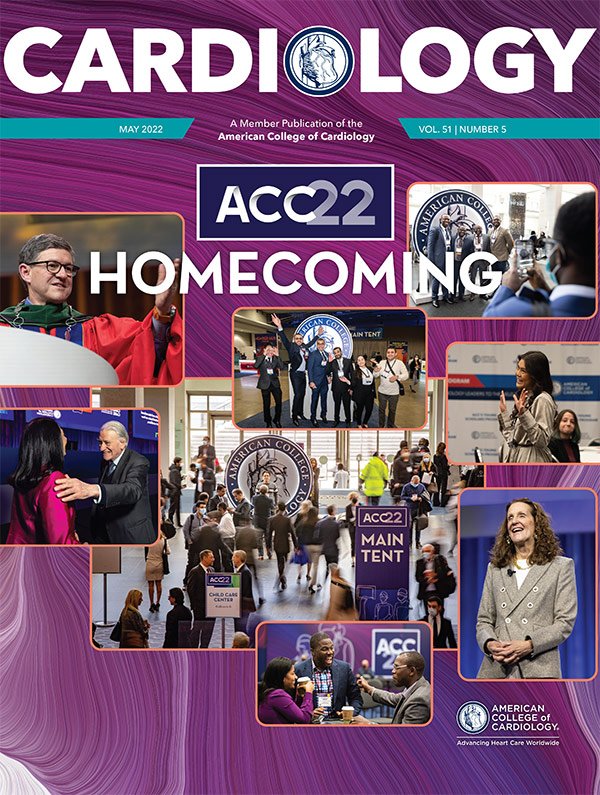Feature | Consistency the Driving Force in Research For Award Namesake
Valentin Fuster Award for Innovation and Science Presentation

A scientific breakthrough is often seen as a sudden leap forward, but for Valentin Fuster, MD, PhD, MACC, there are no leaps, just a relentless digging to uncover the cause of a problem and find a solution. When asked to describe his approach to scientific inquiry, the renowned cardiologist and researcher has a simple one-word reply: consistency.
"From the very beginning, I have followed a step-by-step approach to go to the roots of the problem," Fuster says. "Thus, I started working on platelets as playing a key role in the number one cause of mortality, acute coronary syndromes and strokes. But platelets stick into a disrupted vessel wall, which led us to the use of MRI technology at autopsy to better understand the concept of the vulnerable or high-risk plaque. But the problem with the vessel wall is the conglomerate of risk factors that by injuring the vessel lead to the deposition of lipids – a reality, in part, of an unhealthy world of consumption. This is why at present I am part of the trend of moving the focus from disease to health because we must understand how this all begins. Consistency is required in the way you project yourself into the research."
President's Picks Conversation With Dr. Fuster

Learn more about Fuster's views on the future of science and the importance of fostering the next generation of cardiovascular care professionals, how he got started in medicine and research, and more in his conversation with Dipti Itchhaporia, MD, MACC, past ACC president, on the Heart 2 Heart Stage during ACC.22. Click here to start listening.
The Valentin Fuster Award in Science and Innovaton
Click here for a video to hear more about this new award from ACC and Fuster's work. And click here for a photo essay of Fuster.
That approach has made Fuster a legend in cardiovascular research and why the ACC created the new Valentin Fuster Award for Innovation in Science to recognize individual's meaningful contributions to cardiovascular medicine as a champion of scientific research, an innovator in the delivery of science through novel mechanisms and/or an international voice on the importance of embracing scientific inquiry to improve the care of cardiovascular patients and promote lifelong heart health. Fuster was the first recipient of the award during ACC.22, which will be granted annually for next 15 years and is supported by Elsevier, the College's peer-review publishing partner.
"While I am honored to receive the award, the most important aspect is how it will inspire and recognize others who are accomplishing goals in research and innovation to move us forward," Fuster says.
"We know a lot about cardiovascular disease, but we don't know so much about health. I think the great movement now is to better understand health and to see how disease develops much earlier so we can do something about it before it is already fully developed."
According to Fuster, imaging, genetics, artificial intelligence, pharmacologically enhancing the defense pathway mechanisms of supporting health, and the study of specific circulating cells, especially monocytes and white cells because of the vast amount of information they hold about the individual, will be key to these efforts and something he hopes futures award winners will hold the answers to.
Imaging is developing rapidly, he notes, and genetics will require some time before its applicable at a population level. "Artificial intelligence is evolving very rapidly, but we must be careful, because it is going to be complex. Artificial intelligence is here to stay and it will have a huge impact, but I think we have to use it very slowly before we break up everything we know at this time."
In addition to new science, the study of health across age ranges, especially in children will also be key to advancing solutions to care, says Fuster. Birth to age 20 years is key for two reasons, he says. First is to teach children around the world about the importance of leading a healthy life from a young age, impacting their lives and health as they age. Second is to teach young people about ethics, especially in education and research, and encourage curiosity and interest in research. "This is how we are going to create the investigators of the future," he says.
Clinical Topics: Cardiovascular Care Team, COVID-19 Hub, Heart Failure and Cardiomyopathies, Prevention, Acute Heart Failure, Hypertension
Keywords: ACC Publications, Cardiology Magazine, ACC22, ACC Annual Scientific Session, Consensus, COVID-19, Feedback, Respect, Social Media, Workplace, Cardiology, Hypertension, Health Policy, Heart Failure, Physicians, Referral and Consultation, Awards and Prizes
< Back to Listings


